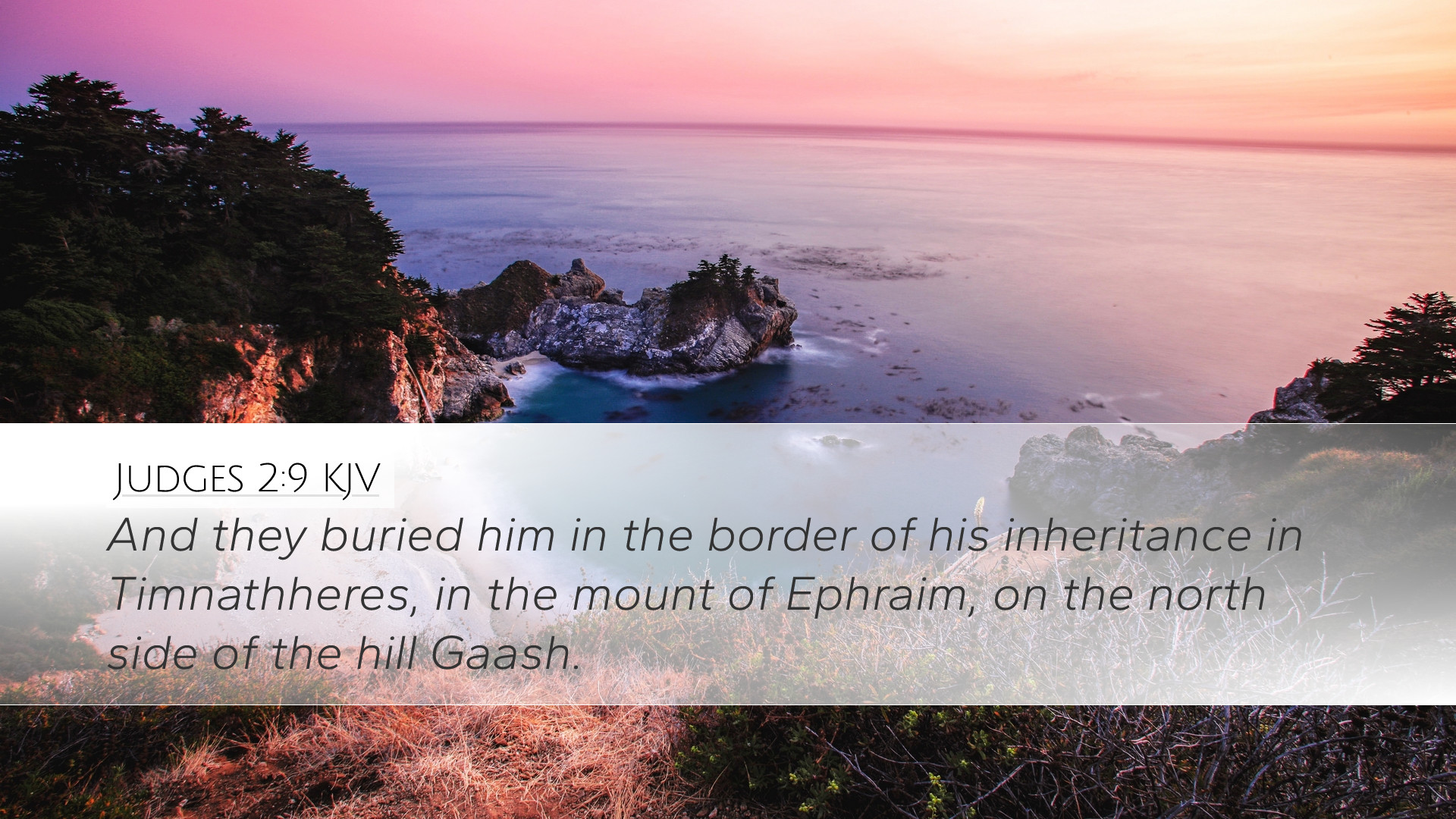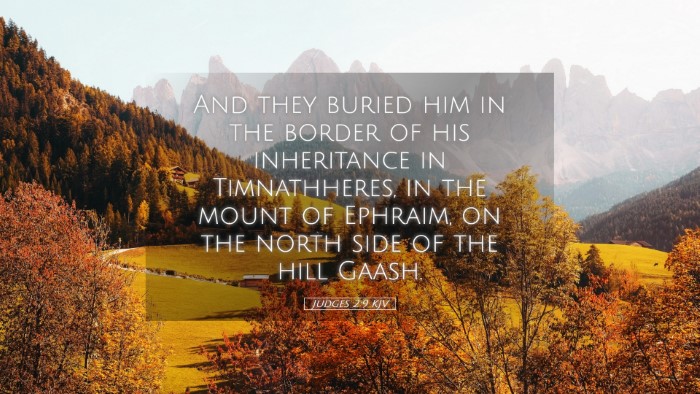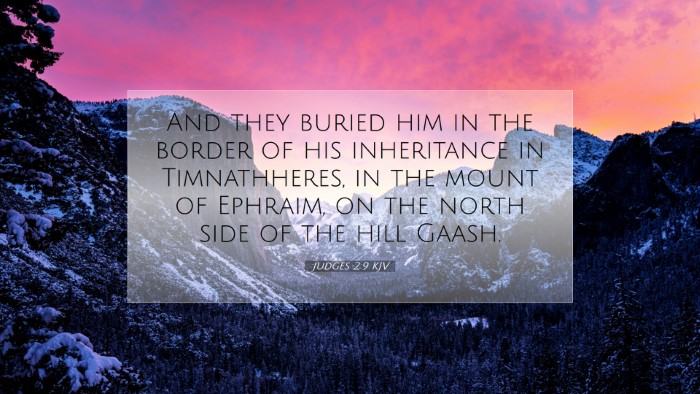Old Testament
Genesis Exodus Leviticus Numbers Deuteronomy Joshua Judges Ruth 1 Samuel 2 Samuel 1 Kings 2 Kings 1 Chronicles 2 Chronicles Ezra Nehemiah Esther Job Psalms Proverbs Ecclesiastes Song of Solomon Isaiah Jeremiah Lamentations Ezekiel Daniel Hosea Joel Amos Obadiah Jonah Micah Nahum Habakkuk Zephaniah Haggai Zechariah MalachiJudges 2:9
Judges 2:9 KJV
And they buried him in the border of his inheritance in Timnathheres, in the mount of Ephraim, on the north side of the hill Gaash.
Judges 2:9 Bible Commentary
Commentary on Judges 2:9
Bible Verse: "And they buried him in the border of his inheritance in Timnathheres, in the mount of Ephraim, on the north side of the hill of Gaash."
Introduction
The passage in Judges 2:9 marks a significant moment in the narrative of Israel’s history. This commentary seeks to unpack its meaning and implications by referencing insights from authorities in biblical commentary, notably Matthew Henry, Albert Barnes, and Adam Clarke.
Contextual Significance
The concluding verses of the Judges introduce themes of leadership, memory, and legacy. The focus on the burial of Joshua, a prominent figure in Israel's conquest of Canaan, underscores the transition of leadership and the responsibilities of the Israelites moving forward.
Matthew Henry's Insights
Matthew Henry emphasizes the importance of Joshua not only as a leader but as a model of faithfulness. His burial in Timnathheres symbolizes a closure to an era marked by divine guidance and conquest.
- Legacy of Leadership: Henry notes that Joshua's leadership was characterized by his unwavering faith in God, which is a lesson for all future leaders within the faith community.
- Relocation and Heritage: The mention of Timnathheres indicates the significance of homeland and inheritance, suggesting that one's legacy is closely tied to their roots and community.
Albert Barnes' Analysis
Albert Barnes provides a more historical and geographical perspective on the text. He points out that the region of Timnathheres, located in the hill country of Ephraim, serves as a reminder of the tribal inheritances that were integral to Israelite identity.
- Significance of Burial Location: Barnes emphasizes that the chosen burial site reflects Joshua’s achievements and the divine promise of land, as well as fulfilling the traditions of respect for leaders who serve God.
- Symbol of Hope: The act of burial itself is more than a conclusion; it illustrates hope for the nation. Joshua's life exemplifies faithfulness to God's covenant, inviting Israel to reflect on their own faith and obedience.
Adam Clarke's Thoughts
Adam Clarke offers a theological reflection on the passage, exploring the spiritual implications of leadership and remembrance. He highlights how Joshua's death and burial signal a critical epoch in Israel's journey.
- Transition and Reflection: Clarke notes that Joshua’s death marks a pivotal transition—from one generation of leaders to another. This transition serves as a call for introspection among the people of Israel regarding their covenant relationship with God.
- Conservation of Memory: Clarke posits that the Israelites’ act of burying Joshua in a prominent location serves as a memorial, encouraging future generations to remember their lineage and the covenant faithfulness of their leaders.
Theological Implications
This passage presents key theological insights that are relevant to today’s church, especially in guiding leaders and followers of Christ in their mission and responsibilities.
- Continuity of Faith: The burial of Joshua serves as a reminder that faith precedes societal progress and that success in God's mission relies on faithful leadership and remembrance of God’s past works.
- Intergenerational Responsibility: The context encourages current believers to engage actively in preserving the teachings and legacy of faith for future generations.
Summary and Conclusion
Judges 2:9 encapsulates the themes of legacy, leadership, community, and faithfulness. From the insights of Matthew Henry, Albert Barnes, and Adam Clarke, we see a multifaceted interpretation of this verse that emphasizes both historical context and profound theological truths.
As pastors, students, theologians, and scholars engage with this text, it invites a deeper contemplation of how this rich biblical heritage informs our present and future as a community of faith. The challenge remains for believers to honor the legacy of faithful leaders such as Joshua while actively pursuing God's mission in an ever-changing world.


